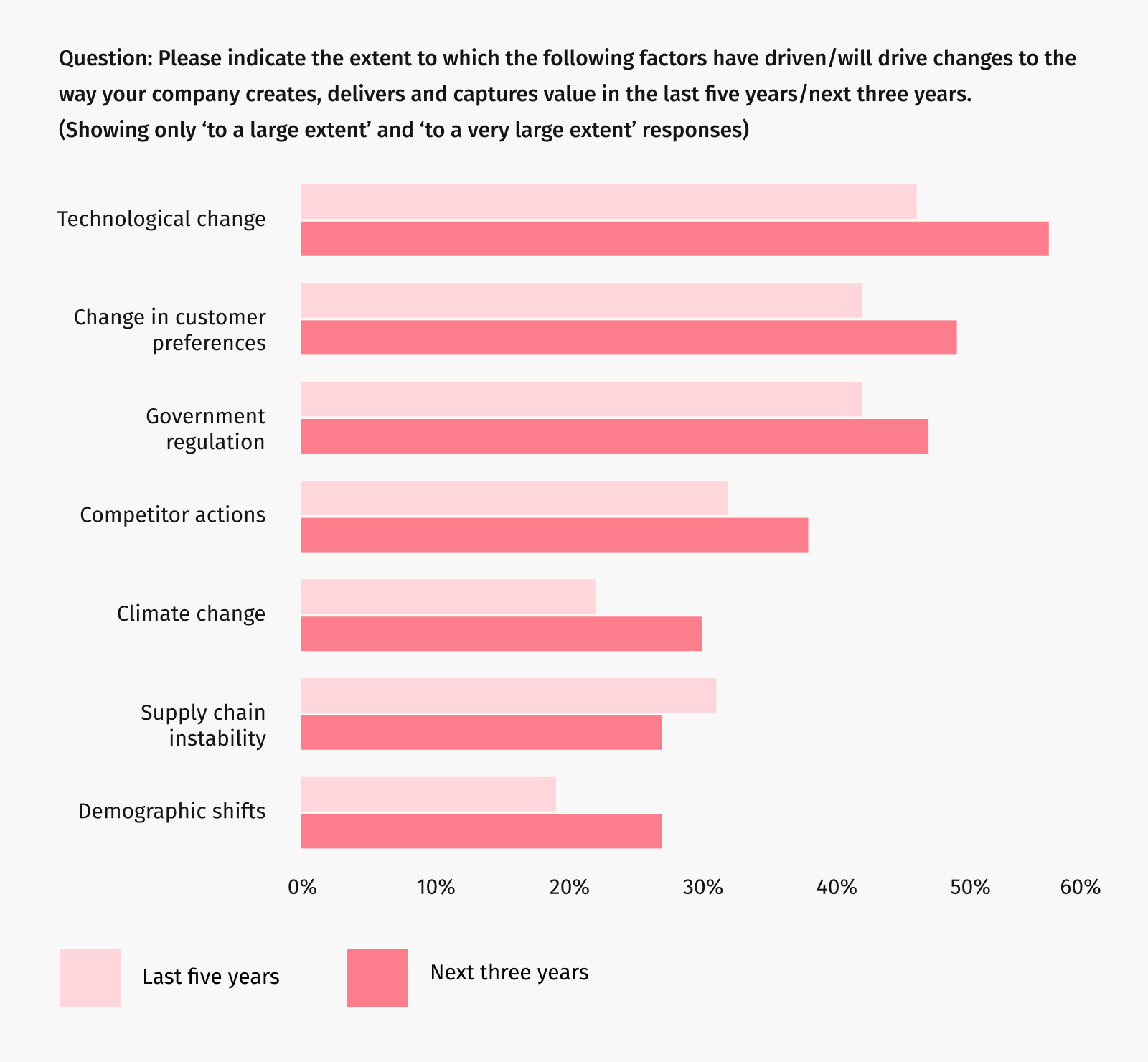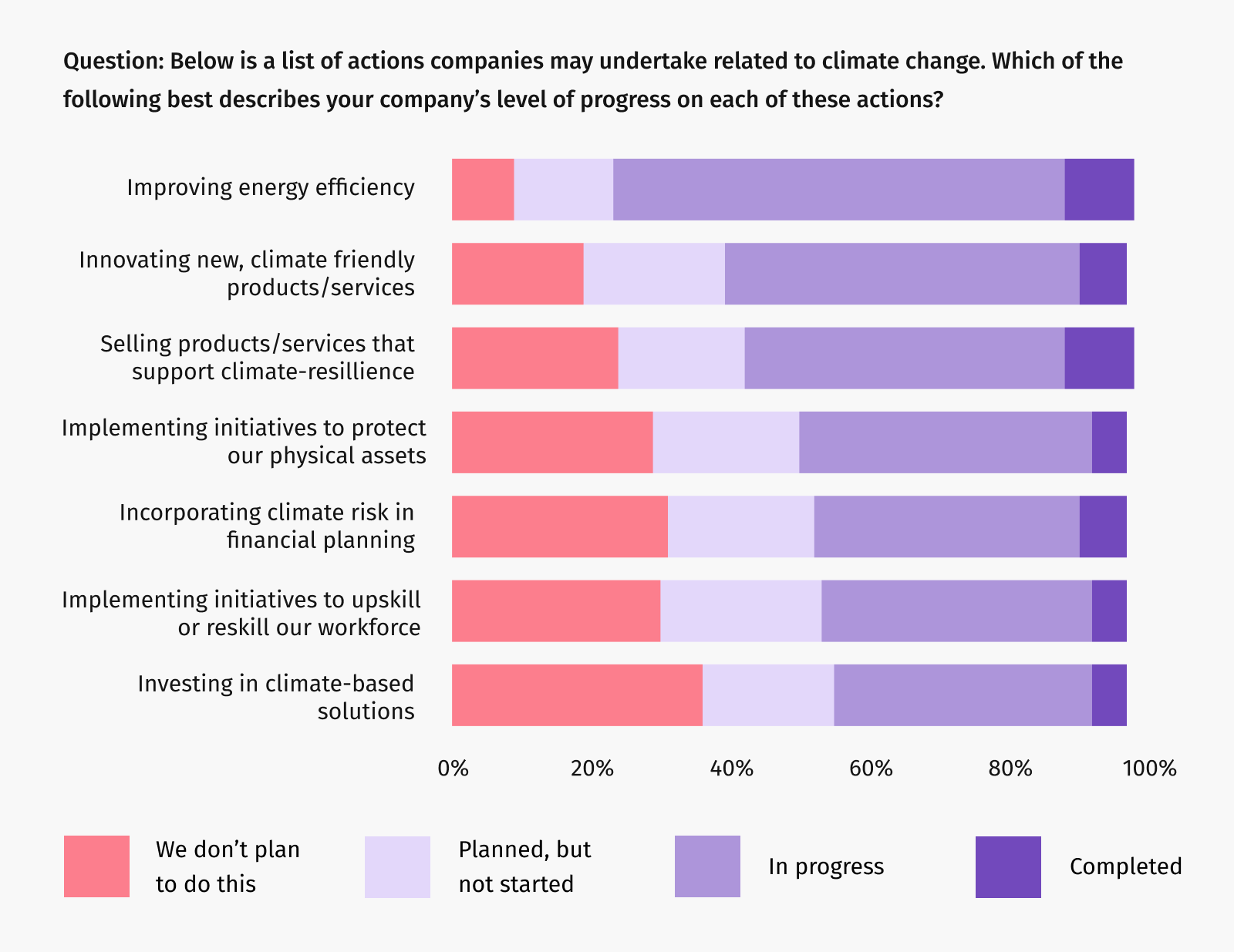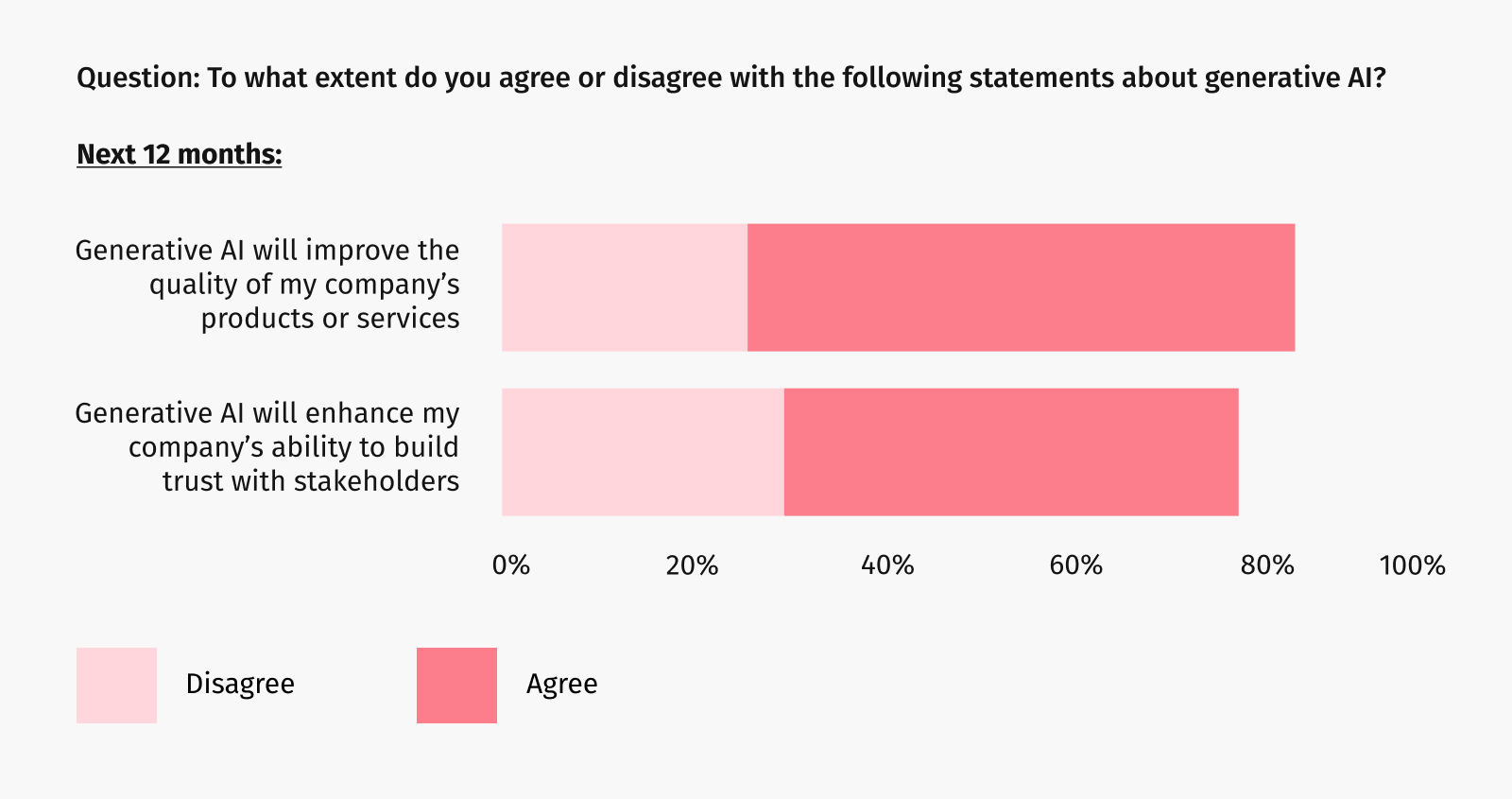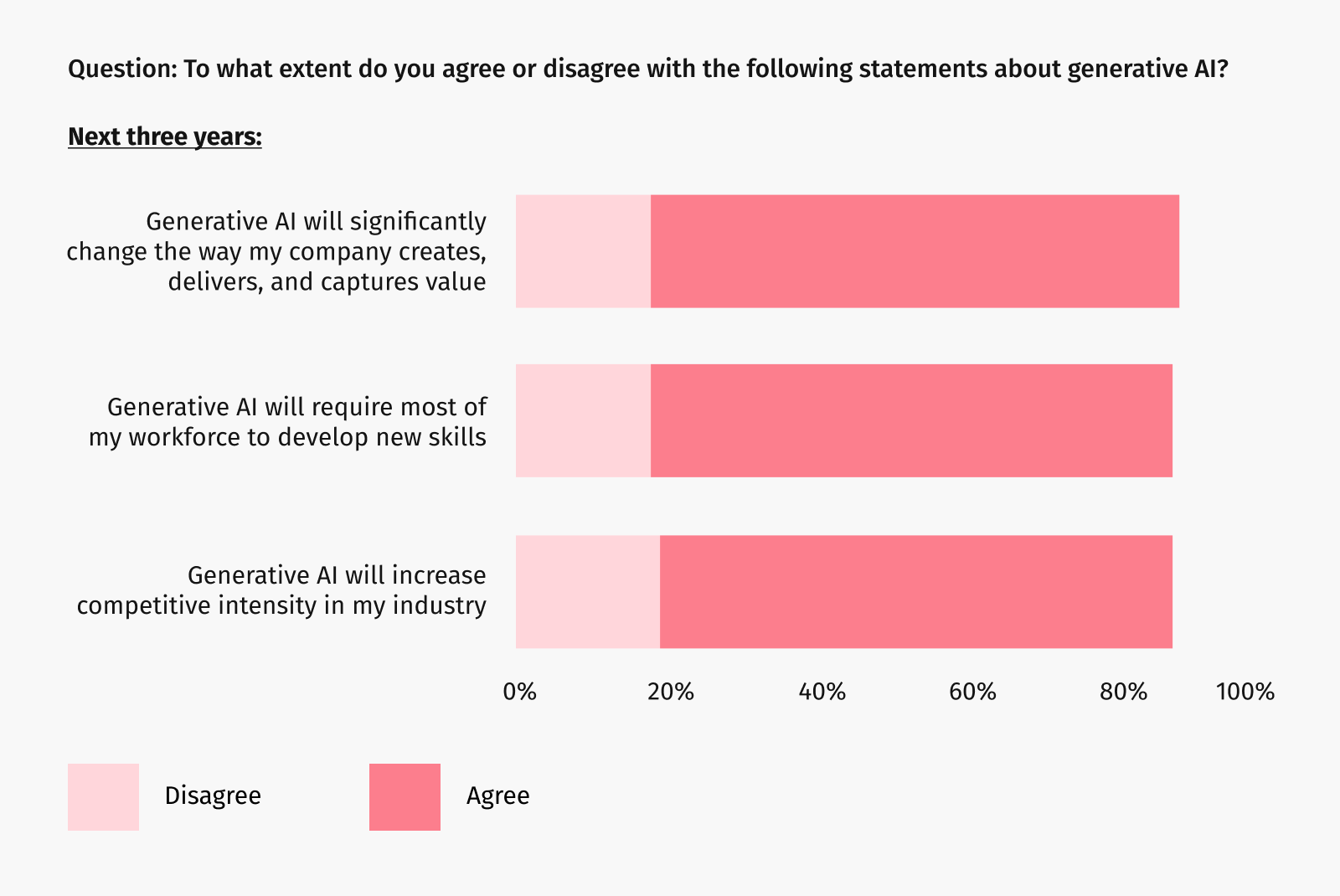PwC has published its 27th annual report, “Annual CEO Survey,” which consists of statements from 4,702 CEOs from over 105 countries. 38% of these CEOs have a positive outlook on the global economy in 2024, which is 20% more than in 2023.
In general, the CEOs agree that 2024 will be characterized by two megatrends: sustainability and technological disruption. Here, reference is made to using generative AI in the workplace. Against the backdrop of these megatrends, more CEOs are shifting their focus to reinventing their companies to adapt to the pressing market conditions.
The Need to Reinvent Companies is Increasing
In particular, the need to reinvent oneself was something that came up repeatedly during the conversations between PwC partners and managing directors worldwide. 45% of the CEOs surveyed do not believe that their company will be viable in 10 years if it does not reinvent itself to some extent. Generally, managing directors of smaller companies are more concerned about viability than directors of larger companies. This is despite the managing directors being generally more positive about the economic situation than last year.
The report suggests that many companies have already implemented initiatives to guide them towards reinvention. This includes, among other things, changes in the companies’ business models to ensure that they remain viable and can compete in a market characterized by sustainability and technological development.

The managing directors largely attribute technological change as the motivation to change the business models. 56% see technological disruption as changing how businesses are run within the next three years. This is followed by changing customer preferences (49%) and regulations from states (47%). 30% also consider climate change to be a significant factor in changing business models.
The need to reinvent companies may also stem from a belief that this is what one’s competitors are up to. 38% believe that the actions of competitors will affect how they do business. Something else that affects how CEOs run their companies is actually how uncertain they are about the company’s ability to survive.
The report also identifies the need to reallocate resources (both financial and human). The link between reallocation, reinvention, and financial performance suggests that more aggressive reallocation is required to succeed in 2024:
Nearly two-thirds of executives reported reallocating 20% or less of resources from last year to this year. In addition, almost 30% of them mentioned that they have only reallocated 10% or less of the company’s resources. A higher degree of annual reallocation was associated with both a greater degree of reinvention and higher margins.
Megatrend 1: Sustainability
Among all the megatrends, none is more overshadowing than climate change. Executives report that ⅔ of them have initiated efforts to improve energy efficiency – another 10% report that they have completed such initiatives. Half report that they are in the process of innovating and producing more climate-friendly products and services.
We see a trend in which Western European directors are more likely to support sustainability and focus on energy efficiency and innovation initiatives. However, four out of 10 on a global level say that they are willing to make complex trade-offs in an effort to create more sustainable companies.
The most popular sustainable initiatives on a global scale are:
- Improving energy efficiency
- Innovate new, climate-friendly products/services
- Sell products/services that support climate resilience
The least popular initiative is investments in climate-based solutions.

Megatrend 2: AI
The pressure to reinvent companies will intensify in 2024. Executives expect more pressure over the next three years than they have experienced in the past five. This is because of technology, climate change, and other megatrends affecting global businesses.
Overall, managing directors experience a large amount of inefficiency across the regular activities carried out on an everyday basis in the companies. This spans everything from decision-making meetings to sending emails. It is estimated that 40% of the time spent on these tasks is ineffective.
60% of the managing directors expect that AI, or artificial intelligence, will increase efficiency in companies and help reduce the number of tasks that take up too much valuable time.


In addition, half of CEOs believe that artificial intelligence can improve their ability to build trust with stakeholders, and around 60% expect it to help improve the quality of products or services. Almost seven out of ten respondents also expect that artificial intelligence will increase competition, change business models, and place new demands on the workforce within the next three years.
Despite the praise artificial intelligence receives, most companies have not yet changed their technology strategy or implemented AI. Within the next three years, more than ⅔ of CEOs believe that using artificial intelligence will change how companies create and deliver value. In addition, there is a strong belief that the workforce will be forced to learn new skills to remain competitive in the labour market.
The fact that artificial intelligence is expected to increase efficiency among companies can, unfortunately, have negative effects on society since some of these efficiency advantages will probably cause a reduction in the number of employees in companies. ¼ of the managing directors expect to reduce their number of employees by at least 5% in 2024 based on the use of artificial intelligence.

